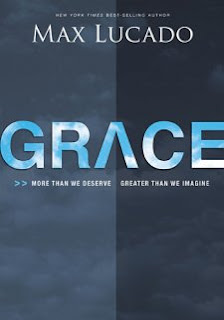I cheated. Author Rick Warren requests you take 40 days to read The Purpose Driven Life: What on Earth Am I Here For? so you can reflect on each chapter. Instead, I read through it in 8 days. So, it is possible, okay I know, I missed out on the full impact of the book.
In The Purpose Driven Life, Warren walks his readers though the theological and practical spiritual steps to living on purpose. Each chapter is a daily meditation that focuses on one topic and finishes with points to consider and questions to ask. For the expanded edition, Warren has added codes that can be scanned by a smart phone and provides access to videos that accompany the chapters. The book is broken into sections on living for God’s pleasure, living as part of God’s family, living to imitate Christ, service and missions. At the conclusion of the book are numerous appendixes for additional resources, including some free ones, and Bible verses.
Lately, I have been complaining about generic Christian books and my frustration over them. In many ways I can see how The Purpose Driven Life provides nothing really new and is generic. But even when I read the first edition over 8 years ago I never got the sense that Warren was trying to provide breakthrough ideas. Instead, I think he was attempting to make 2,000 years of theological study fit within a container that was understandable to the general public. The reaction and book sales make it clear that he accomplished his goal. So in many ways I feel like generic Christian books are trying to copy the Warren success, rather than this book being part of the problem.
I really do suggest reading this book as a group. I can remember when I did this in weeks one and two our group discussed questions like what job does God want me to have. But by the time we dug into the content the question really became what kind of person does God want me to be. Ironically and results may vary, that is when jobs and other personal requests opened for the group. The Purpose Driven Life was one of the most successful group studies I have been part of.
I really would recommend this book as a small group tool or a book that would be helpful to a new believer. Even for those who have been around for awhile it can be very useful. I found myself contemplating Warren’s comments about how the church is filled with servant-leaders not servants. And the new chapters on envy and people pleasing are highly insightful. All in all, the expanded edition only helps to build on the success of this highly popular book.
Review Copy Provided by Thomas Nelson












